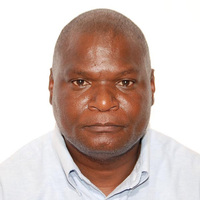This program is currently on indefinite hold due to changing NIH policies.
Amount available: $30,000 in direct costs for 1 year
Apply through the UCSF Resource Allocation Program (RAP) portal
The International Mentored Scientist Award seeks to provide a mentored career development opportunity in HIV research for international investigators affiliated with UCSF. Applicants for this award must indicate a UCSF-affiliated faculty research mentor(s) in HIV who will commit to guiding the applicant for the application process and throughout the duration of the proposed project. Project proposals should be geared toward the interests of the applicant (e.g., clinical, basic, implementation science and/or behavioral-epidemiological research) and focus on HIV research in the investigator’s home country.
Eligibility
Researchers (all levels), post-doctoral fellows, and trainees located at a UCSF-affiliated foreign institution who have not received an NIH R01- equivalent grant in HIV/AIDS are eligible. Please note that CFAR is not allowed to provide funding to any investigators who have received HIV-related R01 awards. More senior faculty members may apply only if they are newly entering the field of HIV research.
Designation of Mentor (Critical)
Mentoring is critical to the training component of the CFAR International Mentored Scientist awards. All International Mentored award applications require a faculty research mentor from UCSF or a UCSF-affiliated institution (https://cfar.ucsf.edu/about/partners). Applications without a mentor will be disqualified.
Applicants must identify their UCSF-affiliated mentors and arrange to receive mentor advice and guidance on the research portion of their application well before it is submitted (typically at least two months before the RAP deadline). CFAR is no longer available to assist with mentor identification.
Projects must be within NIH’s HIV/AIDS research high or medium priority areas. Projects in closely related areas (e.g. TB, HCV, drug use, etc.) must be clearly linked to HIV in order to be eligible for CFAR funding.
CFAR requests that applicants review the NIAID HIV Language Guide as they prepare their proposals so that they can follow best practices on language for communicating respectfully about HIV and related topics, including the use of person-first, non-stigmatizing language. Please contact us if you have any questions about this request.
The award amount is $30,000 in direct costs for one year.
For more detailed information about this RFA, please see the RAP Portal.
International Mentored Science Awardees
38 Awards
-
Exploring HIV care of highly mobile HIV-positive youth living in Kenya and Uganda: qualitative study to identify gaps in the HIV care cascade and evaluate feasible intervention options
Exploring HIV care of highly mobile HIV-positive youth living in Kenya and Uganda: qualitative study to identify gaps in the HIV care cascade and evaluate feasible intervention options
Abstract
In sub-Saharan Africa (SSA) sub-optimal care engagement among youth living with HIV (YLWH) aged 15 – 24 years presents a challenge for the control of the HIV epidemic. Mobility is a chief contributor to the lags in the last two 90 of the 90-90-90 UNAIDS target in SSA- home to the largest intra-continental movement of people, largest youth population, and the highest burden of HIV/AIDS. The majority of YLWH in SSA access care within systems largely designed for adult and stable populations; service provision fails to meet their unique needs, leading to lapses in care and non-adherence.
-
Exploring HIV care of highly mobile HIV-positive youth living in Kenya and Uganda: qualitative study to identify gaps in the HIV care cascade and evaluate feasible intervention options
Exploring HIV care of highly mobile HIV-positive youth living in Kenya and Uganda: qualitative study to identify gaps in the HIV care cascade and evaluate feasible intervention options
Abstract
In sub-Saharan Africa (SSA) sub-optimal care engagement among youth living with HIV (YLWH) aged 15 – 24 years presents a challenge for the control of the HIV epidemic. Mobility is a chief contributor to the lags in the last two 90 of the 90-90-90 UNAIDS target in SSA- home to the largest intra-continental movement of people, largest youth population, and the highest burden of HIV/AIDS. The majority of YLWH in SSA access care within systems largely designed for adult and stable populations; service provision fails to meet their unique needs, leading to lapses in care and non-adherence.
-
Understanding factors that facilitate effective uptake and integration of health interventions in South African primary health care clinics
Understanding factors that facilitate effective uptake and integration of health interventions in South African primary health care clinics
Abstract
Although antiretroviral therapy (ART) has been established as a highly successful HIV prevention tool and despite international calls to prioritize programs that will ensure HIV diagnosis, ART prescription, and viral suppression,1 only a small number of programs to improve ART uptake, retention in care, and adherence to medication have been successfully integrated into health systems.
-
Understanding factors that facilitate effective uptake and integration of health interventions in South African primary health care clinics
Understanding factors that facilitate effective uptake and integration of health interventions in South African primary health care clinics
Abstract
Although antiretroviral therapy (ART) has been established as a highly successful HIV prevention tool and despite international calls to prioritize programs that will ensure HIV diagnosis, ART prescription, and viral suppression,1 only a small number of programs to improve ART uptake, retention in care, and adherence to medication have been successfully integrated into health systems.
-
Testing Medicinal Plants from Uganda for HIV Latency Reversing Activity
Testing Medicinal Plants from Uganda for HIV Latency Reversing Activity
Abstract
Current antiviral regimens for HIV have been highly successful in limiting viral HIV replication and reducing viral loads to undetectable levels in most patients. However, these antiviral drug regimens do not cure the infection because HIV is able to establish a latent reservoir within memory CD4 cells that are not attacked by combined anti-retroviral therapy (cART).
-
Testing Medicinal Plants from Uganda for HIV Latency Reversing Activity
Testing Medicinal Plants from Uganda for HIV Latency Reversing Activity
Abstract
Current antiviral regimens for HIV have been highly successful in limiting viral HIV replication and reducing viral loads to undetectable levels in most patients. However, these antiviral drug regimens do not cure the infection because HIV is able to establish a latent reservoir within memory CD4 cells that are not attacked by combined anti-retroviral therapy (cART).
-
Understanding the impact of an income generating agricultural intervention on sexual behaviour and psychological well being of adolescent girls and young women living in a high HIV urban setting in Western Kenya
Understanding the impact of an income generating agricultural intervention on sexual behaviour and psychological well being of adolescent girls and young women living in a high HIV urban setting in Western Kenya
Abstract
Background: More than 40% of all new HIV infections are among adolescents and of these nearly two-thirds occur in adolescent girls and young women (AGYW) living in sub-Saharan Africa. Food insecurity, poverty and parental HIV/AIDS have been identified as important drivers of HIV risk and vulnerability among AGYW. Household level interventions that target poverty and food insecurity offer many advantages over individual centered approaches by reducing AGYW sexual risk taking and improving psychosocial wellbeing.
-
Understanding the impact of an income generating agricultural intervention on sexual behaviour and psychological well being of adolescent girls and young women living in a high HIV urban setting in Western Kenya
Understanding the impact of an income generating agricultural intervention on sexual behaviour and psychological well being of adolescent girls and young women living in a high HIV urban setting in Western Kenya
Abstract
Background: More than 40% of all new HIV infections are among adolescents and of these nearly two-thirds occur in adolescent girls and young women (AGYW) living in sub-Saharan Africa. Food insecurity, poverty and parental HIV/AIDS have been identified as important drivers of HIV risk and vulnerability among AGYW. Household level interventions that target poverty and food insecurity offer many advantages over individual centered approaches by reducing AGYW sexual risk taking and improving psychosocial wellbeing.
-
Patients and peer navigators lived experiences and drivers for creating a successful personalized adaptive care relationship to treat lapses HIV treatment retention: a longitudinal qualitative study
Patients and peer navigators lived experiences and drivers for creating a successful personalized adaptive care relationship to treat lapses HIV treatment retention: a longitudinal qualitative study

Abstract
Poor retention in HIV care programs is an obstacle in achieving the last two 90s in UNAIDS' 90-90-90 targets and end HIV by 2030. Peer support represents a potentially widely generalizable and cost effective strategy to enhance engagement in HIV care, but to date, a wide variety of peer-based interventions exist and the most effective specific use of peers is not well understood.
-
Patients and peer navigators lived experiences and drivers for creating a successful personalized adaptive care relationship to treat lapses HIV treatment retention: a longitudinal qualitative study
Patients and peer navigators lived experiences and drivers for creating a successful personalized adaptive care relationship to treat lapses HIV treatment retention: a longitudinal qualitative study

Abstract
Poor retention in HIV care programs is an obstacle in achieving the last two 90s in UNAIDS' 90-90-90 targets and end HIV by 2030. Peer support represents a potentially widely generalizable and cost effective strategy to enhance engagement in HIV care, but to date, a wide variety of peer-based interventions exist and the most effective specific use of peers is not well understood.

